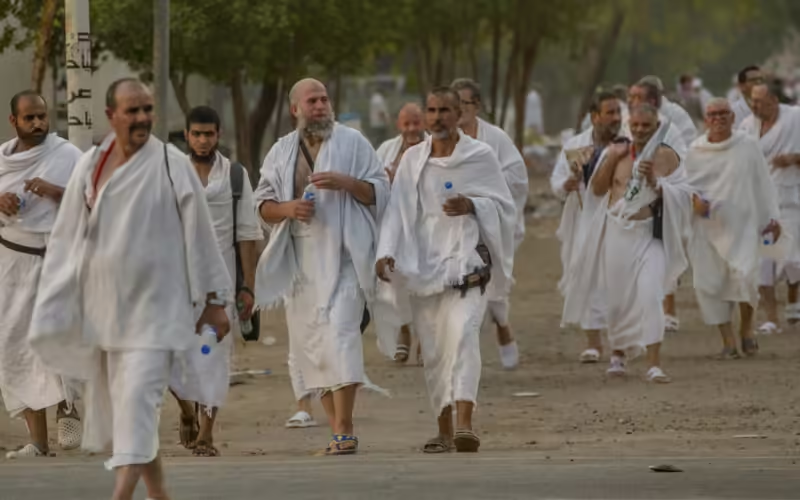Pilgrims can resume normal activities after coming out from the state of Ihram.
During Hajj and Umrah, pilgrims enter the state of Ihram. After wearing the Ihram pilgrims must abstain from certain acts.
This easy-to-follow guide will explain the time and the steps for exiting the Ihram after Hajj or Umrah for men and women.
Taking off Ihram during Hajj, for both men and women, happens after stoning Jamrat Al-Aqabah and involves specific hair rituals.
When to Take Off Ihram After Hajj?
Exiting the state of Ihram during Hajj is an important step for pilgrims. Here’s how it’s done:
- For Men and Women: Both men and women exit Ihram after stoning Jamrat Al-Aqabah.
- Additional Steps for Men: Men also need to shave their heads or cut their hair.
- Steps for Women: Women only need to cut a small portion of their hair.
For Umrah, the Ihram state ends for both genders after completing Tawaf and Sai. Men then either shave or cut their hair, while women cut a small portion of their hair.
This procedure has been confirmed by the Standing Committee for Academic Research and Issuing Fatwas.
What Happens After Exiting Ihram?
After these steps, pilgrims can start doing everything that was forbidden while in Ihram, except for intercourse.
Full exit from Ihram happens after performing Tawaf Al-Ifadah and, if required, Sa`i. At this point, all previous restrictions, including intercourse, are lifted.
When to Take off Ihram after Umrah?
For Umrah, exiting Ihram involves completing Tawaf and Sa`i, followed by hair removal. Men should shave or cut their hair, while women only cut a small portion. Once these steps are done, all prohibitions will be lifted.
For those performing both Hajj and Umrah together (Qiran), the rules are the same as for those performing just Hajj (Ifrad) when exiting Ihram.
Note: This guidance is supported by prominent scholars including Shaykh `Abd Al-`Aziz ibn `Abdullah ibn Baz, Shaykh `Abd Ar-Razzaq `Afifi, Shaykh `Abdullah ibn Ghadyan, and Shaykh `Abdullah ibn Qa`ud.
May Allah grant us the strength to fulfill our religious duties correctly. Blessings and peace upon our Prophet Muhammad, his family, and his Companions.




 WhatsApp Channel
WhatsApp Channel
 Instagram
Instagram
 Facebook
Facebook
 X (Twitter)
X (Twitter)